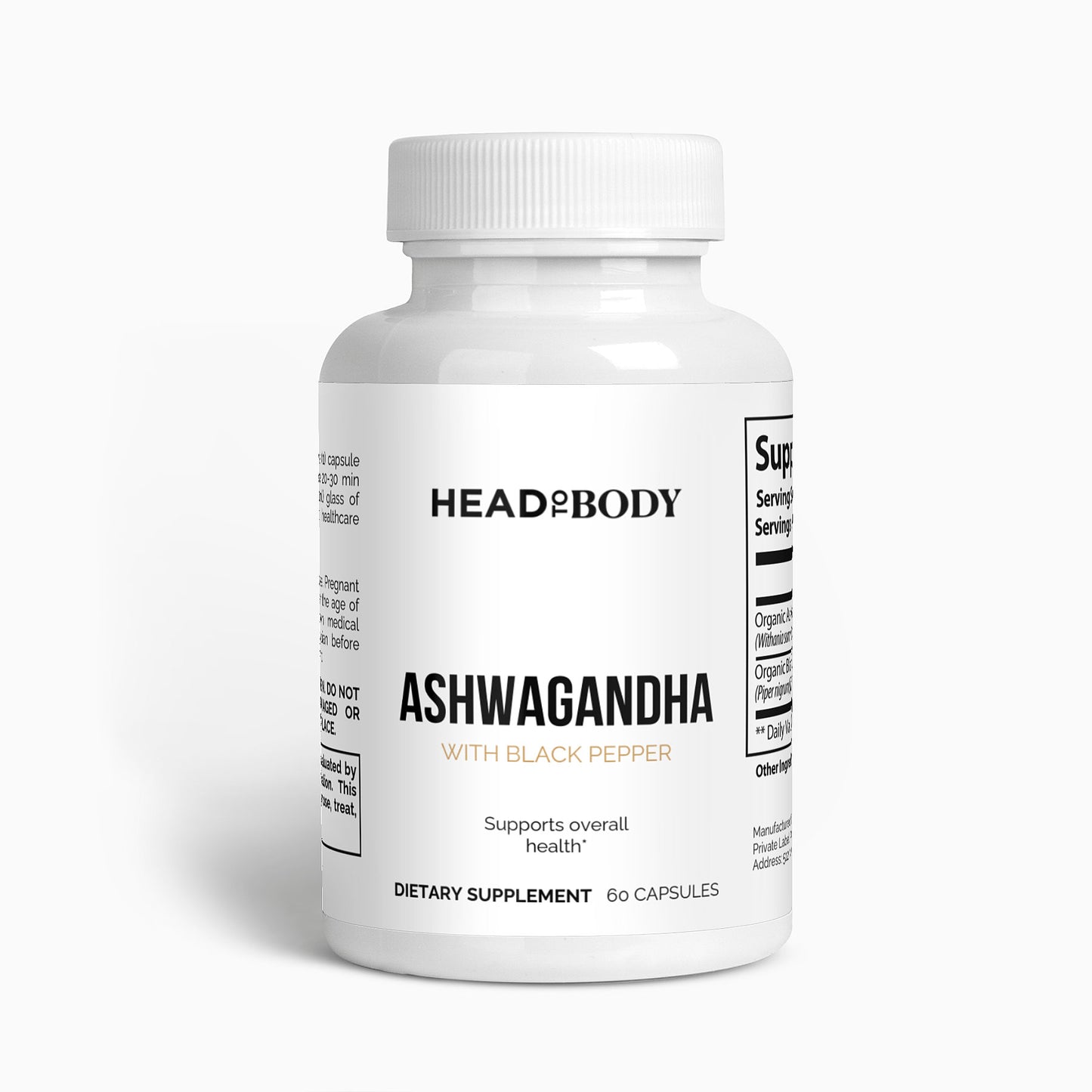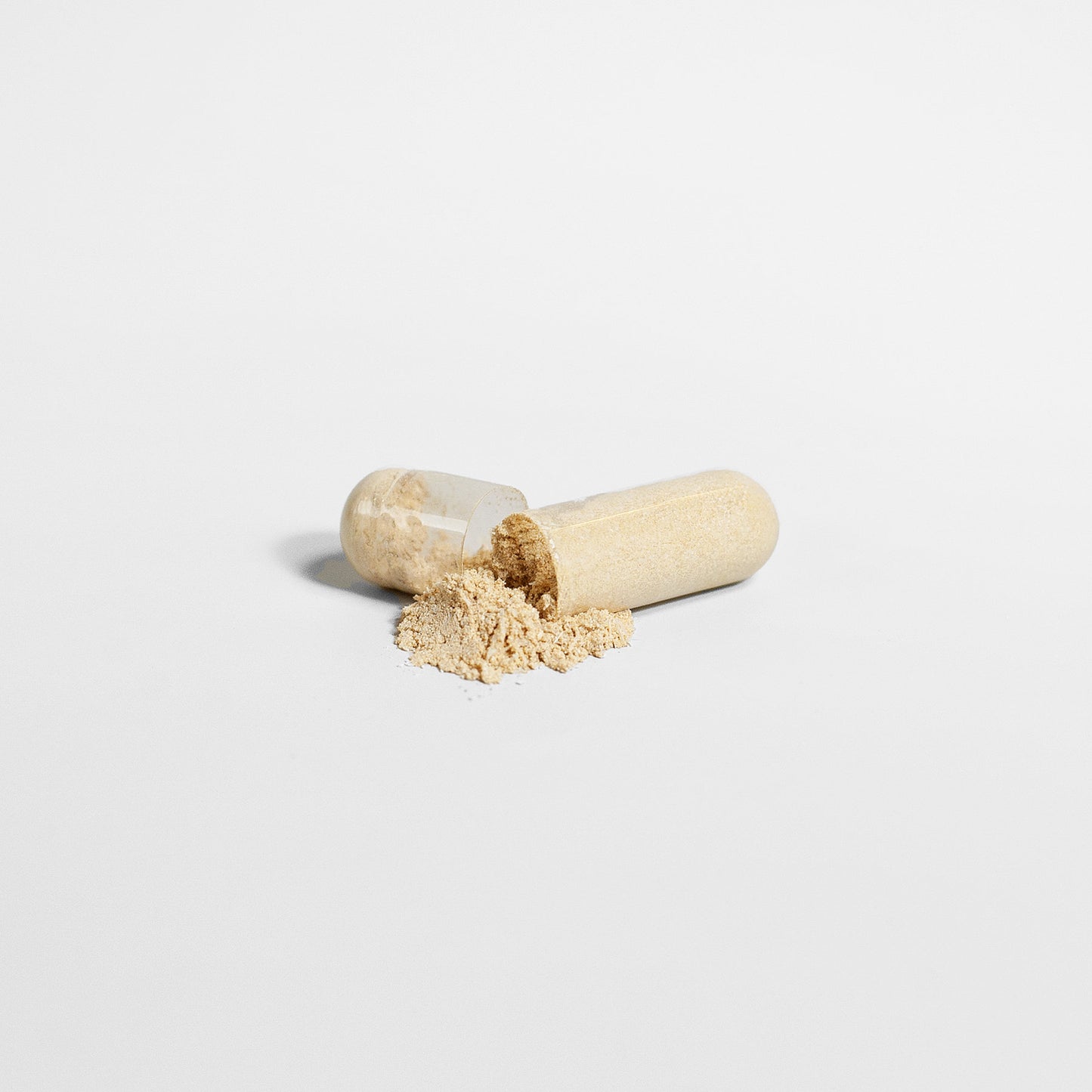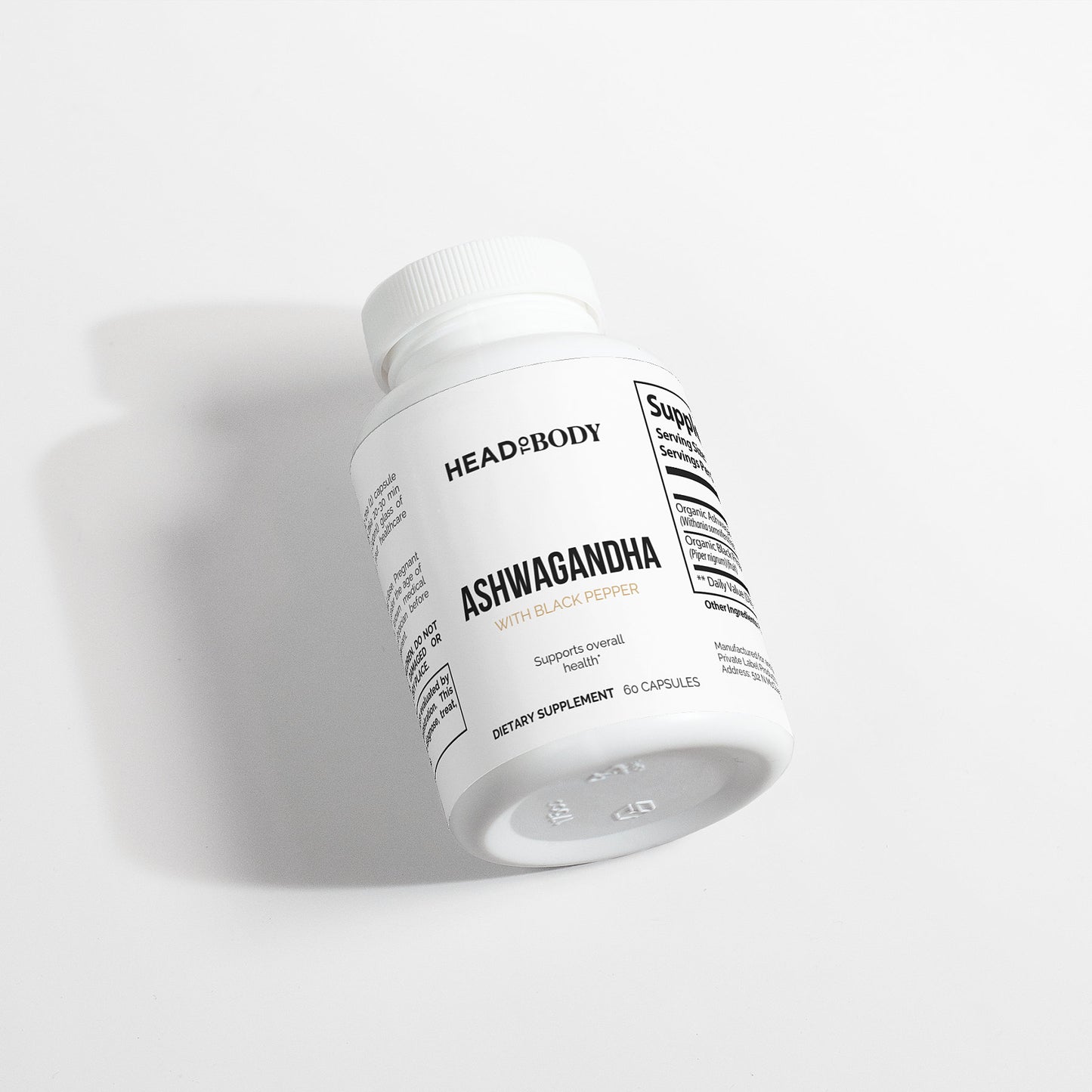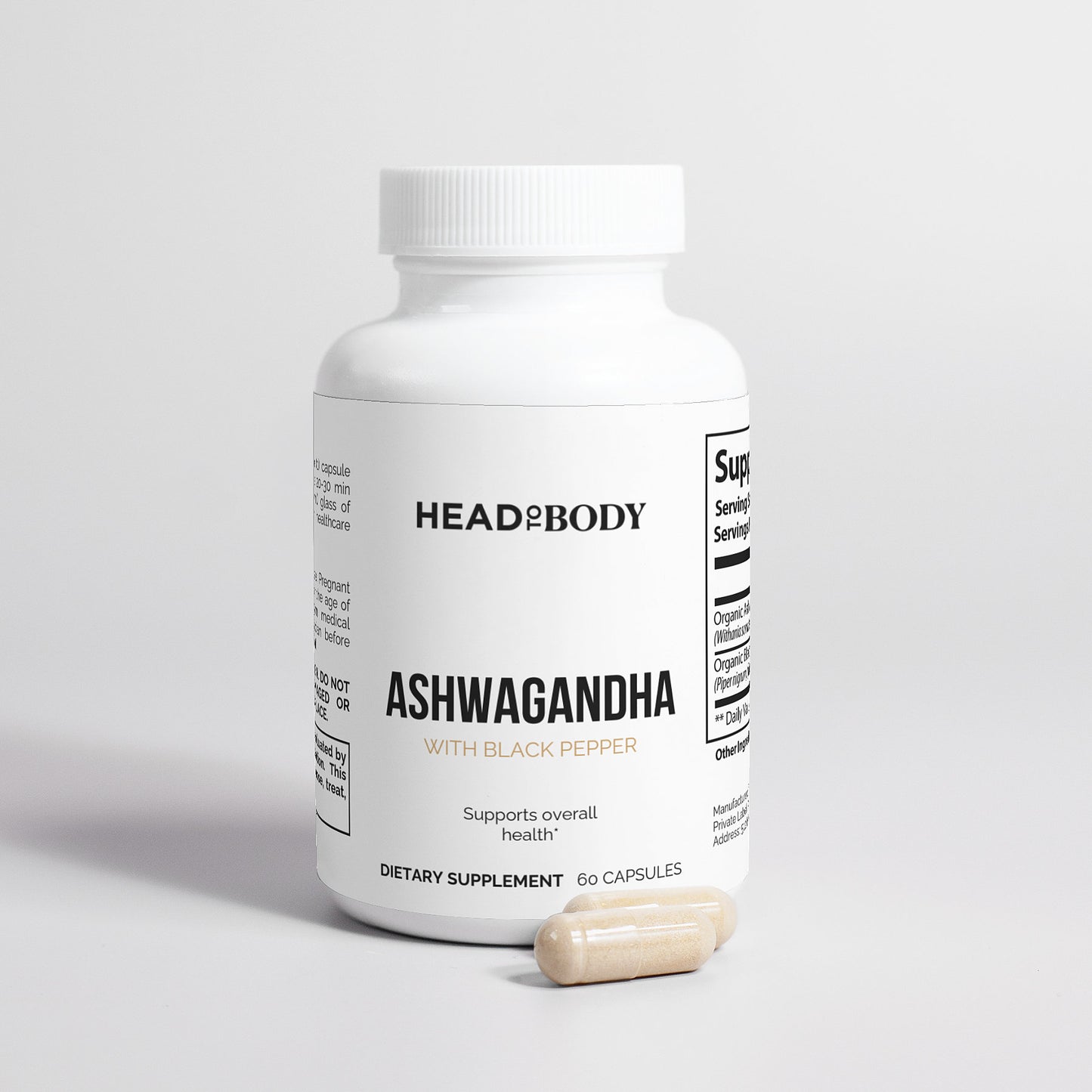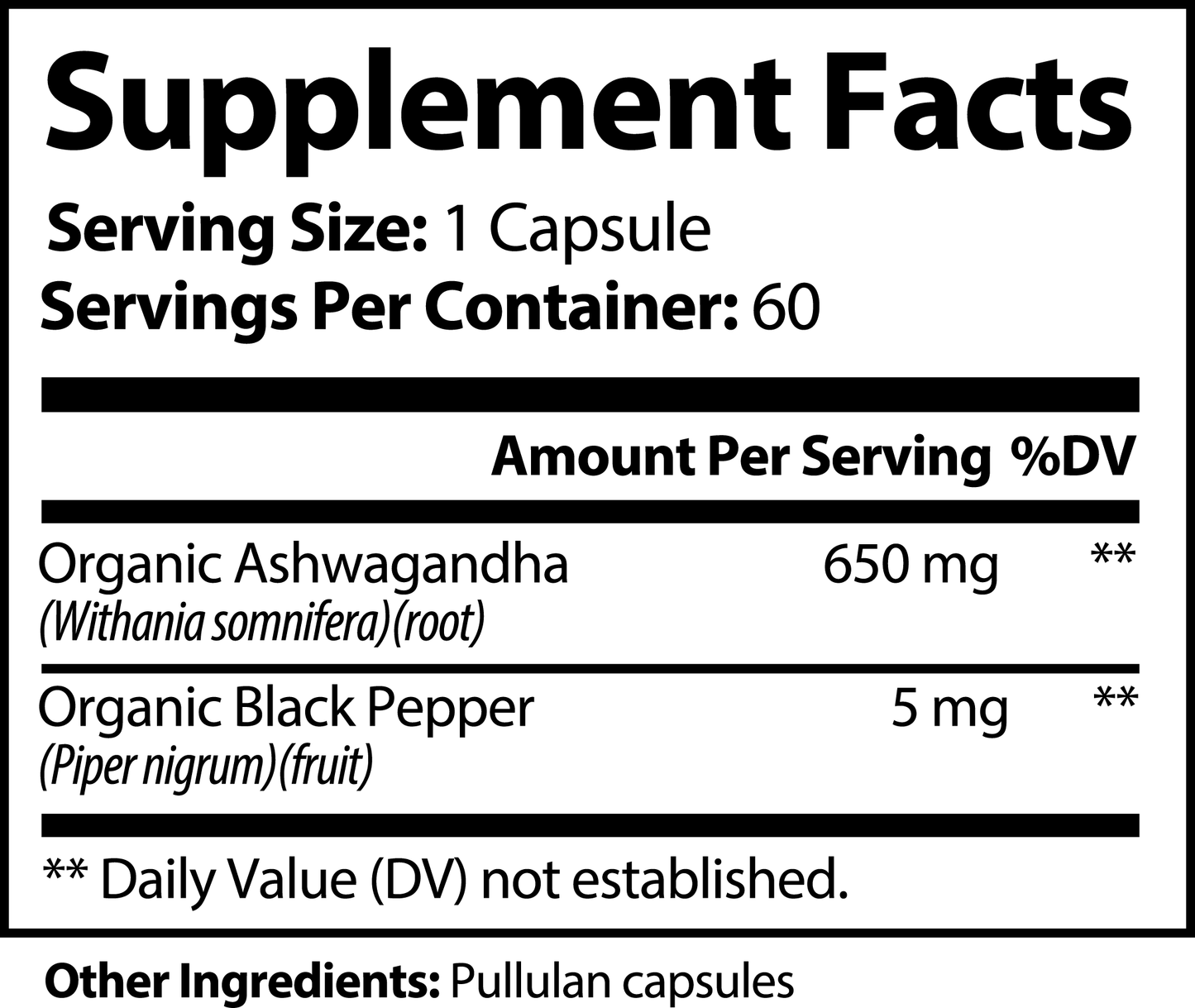Ashwagandha has been called the "king of Ayurvedic herbs," and for good reason. It's not just hype. Studies show that this powerful adaptogen can reduce cortisol levels by up to 30%, helping people manage stress, improve sleep, and boost overall well-being. But does it make you sleepy? That’s a common question, and it’s exactly what we’re here to explore.
If you’ve been feeling overwhelmed, drained, or struggling to unwind after a long day, ashwagandha might just be what your body needs. But unlike traditional sleep aids that knock you out, ashwagandha works differently—calming the mind without the grogginess. In this article, we’ll break down how it impacts sleep, stress, and energy levels, so you can decide if it’s the right fit for your wellness routine.
Ashwagandha is well-known for its ability to reduce stress and promote relaxation, but many people wonder if it can make you feel sleepy. With its calming effects, it’s important to understand whether ashwagandha is best taken during the day or reserved for bedtime. In this article, we will explore how ashwagandha works in the body, its impact on sleep, and whether it’s safe for daytime use.

Understanding Ashwagandha’s Effects on the Body
What is Ashwagandha?
Ashwagandha, also known as Withania somnifera, is a powerful adaptogenic herb that has been used for thousands of years in Ayurvedic medicine. Its name, which translates to "smell of the horse," reflects its ability to enhance strength and vitality. Adaptogens like ashwagandha help the body manage stress and return to a state of balance. The herb is popular for its wide range of health benefits, from reducing anxiety to improving physical endurance.
How Does Ashwagandha Work?
Ashwagandha works by interacting with the body's stress-response system, particularly the adrenal glands and cortisol production. Cortisol is the hormone responsible for regulating stress. When you experience chronic stress, cortisol levels remain elevated, leading to fatigue, anxiety, and difficulty sleeping. Ashwagandha helps regulate cortisol levels, which in turn reduces stress and promotes a sense of calm. By supporting adrenal function, ashwagandha also helps the body adapt to physical and mental stress more efficiently.
Key Benefits of Ashwagandha for Overall Health
Ashwagandha offers a variety of health benefits beyond stress relief. It is known to boost the immune system, improve cognitive function, and enhance physical stamina. Additionally, it helps regulate hormones, making it useful for people dealing with hormonal imbalances or thyroid issues. One of the most significant benefits of ashwagandha is its ability to promote better sleep by reducing stress and anxiety, allowing the body to relax naturally.
Ashwagandha’s Impact on Sleep
How Ashwagandha Reduces Stress and Promotes Relaxation
Ashwagandha is primarily known for its ability to reduce stress and anxiety. The herb works by lowering cortisol levels and balancing neurotransmitters such as serotonin and dopamine. By calming the nervous system, it creates an environment where the body can naturally wind down and relax. This is particularly useful for people who struggle to fall asleep due to stress or racing thoughts.
The stress-relieving properties of ashwagandha make it an excellent natural sleep aid for those who experience anxiety-induced insomnia. However, it’s important to note that ashwagandha’s calming effects do not necessarily cause drowsiness, meaning it can be taken during the day without making you feel overly tired.
Does Ashwagandha Act as a Sedative?
Unlike traditional sleep aids or sedatives, ashwagandha does not force the body into a state of drowsiness. Instead, it helps the body relax by addressing the root causes of stress and anxiety. As a result, while ashwagandha promotes relaxation, it doesn’t knock you out like a sleep-inducing medication would. For people who want a natural way to manage stress and improve their sleep without feeling groggy, ashwagandha provides an ideal solution.
Can Ashwagandha Improve Sleep Quality Without Drowsiness?
One of the key advantages of ashwagandha is that it improves the quality of sleep without making you feel drowsy during the day. Many users report deeper, more restorative sleep after incorporating ashwagandha into their nightly routine, but they don’t experience the grogginess often associated with sleep aids. This means you can use ashwagandha to improve sleep quality while still maintaining energy and focus throughout the day.
Ashwagandha for Daytime Use

How Ashwagandha Supports Energy and Focus
While ashwagandha is known for its relaxing effects, it also has energy-boosting properties. By regulating cortisol levels and supporting adrenal function, ashwagandha helps the body manage stress more effectively. This leads to sustained energy throughout the day without the highs and lows caused by stimulants like caffeine. It also enhances mental clarity and focus, making it a great option for those who need to stay sharp and productive.
Ashwagandha’s ability to support both relaxation and energy makes it unique. It helps reduce the impact of stress while promoting a calm, focused mind. This makes it ideal for anyone juggling a busy lifestyle who still needs to maintain mental performance and stamina.
Is Ashwagandha Safe to Take During the Day?
Yes, ashwagandha is safe to take during the day. In fact, many people use it as part of their daily routine to manage stress and improve focus without worrying about feeling drowsy. Unlike sedatives or strong sleep aids, ashwagandha works with the body's natural rhythms, meaning you can take it in the morning or afternoon without any risk of disrupting your daily activities. It’s also commonly used in combination with other adaptogens for enhanced energy and stress management.
Balancing Relaxation and Alertness with Ashwagandha
One of the remarkable qualities of ashwagandha is its ability to provide balance. It helps the body relax when needed, but it also promotes alertness and mental clarity when you’re awake. This adaptability is what makes ashwagandha an excellent choice for both daytime use and evening relaxation. Whether you need to unwind after a long day or stay calm during a stressful workday, ashwagandha works harmoniously to support both your mind and body.
Ashwagandha and Cortisol Levels
The Role of Cortisol in Stress and Sleep
Cortisol is often referred to as the “stress hormone” because it plays a critical role in how the body responds to stress. While cortisol is essential for certain bodily functions, chronically elevated levels can lead to a variety of health issues, including sleep disturbances. High cortisol levels at night can make it difficult to fall asleep, as the body remains in a heightened state of alertness.
Ashwagandha is particularly effective at reducing cortisol levels, which helps the body relax and prepares it for sleep. By bringing cortisol back into balance, ashwagandha creates an environment where natural sleep can occur without the use of sedatives.
How Ashwagandha Lowers Cortisol for Better Sleep
Studies have shown that ashwagandha can significantly lower cortisol levels, which is one of the reasons it’s so effective for promoting better sleep. By reducing cortisol, ashwagandha helps the body switch from a state of stress to one of rest and recovery. This process not only improves sleep quality but also allows for more restorative sleep, leaving you feeling refreshed and rejuvenated in the morning.
Managing Cortisol Throughout the Day
Ashwagandha isn’t just for sleep—it can also help manage cortisol levels throughout the day. By maintaining balanced cortisol levels, ashwagandha helps prevent the energy crashes and mood swings that are often associated with stress. This makes it a great addition to your daily routine, whether you’re looking to manage stress during the day or prepare for a restful night’s sleep.Should You Take Ashwagandha for Sleep?

When to Take Ashwagandha for Sleep Support
Ashwagandha can be taken at different times depending on your needs. If your primary goal is to use it for sleep support, it’s best to take ashwagandha in the evening, about 30 to 60 minutes before bedtime. This allows the herb to work on lowering cortisol levels and calming the nervous system, making it easier to drift into a restful sleep.
Dosage Guidelines for Sleep and Relaxation
When using ashwagandha for sleep, most experts recommend a dosage of 300 to 600 mg per day. However, individual needs may vary, and it’s important to start with a lower dose and adjust based on how your body responds. If you’re taking ashwagandha in capsule form, follow the instructions on the product label to ensure proper dosing.
Combining Ashwagandha with Other Sleep Aids
Ashwagandha can be safely combined with other natural sleep aids like magnesium, valerian root, or melatonin for enhanced sleep support. Because it’s non-sedating, you don’t have to worry about feeling overly drowsy if you use it alongside other supplements. If you’re struggling with insomnia or occasional sleeplessness, combining ashwagandha with these sleep aids can help improve both the duration and quality of your sleep.
Ashwagandha’s Long-Term Effects on Sleep Patterns
Consistent Use and Sleep Cycle Regulation
One of the key benefits of using ashwagandha for sleep is its ability to regulate your sleep cycle over time. By consistently lowering stress and anxiety, ashwagandha helps the body naturally reset its circadian rhythm, making it easier to fall asleep and stay asleep. Long-term use of ashwagandha can help improve your overall sleep patterns, leading to more consistent and restorative rest.
How Long Does It Take to Notice Sleep Improvements?
Most people begin to notice improvements in their sleep within a week or two of taking ashwagandha regularly. However, as with any natural supplement, individual results may vary. Some people experience faster results, while others may need to take ashwagandha for several weeks before seeing significant changes in their sleep quality.
Ashwagandha for Chronic Sleep Issues or Occasional Use?
Ashwagandha can be used both for chronic sleep issues and occasional sleeplessness. For those dealing with chronic stress-related insomnia, taking ashwagandha regularly can help address the underlying causes of sleep disturbances. If you only experience occasional difficulty sleeping, you can take ashwagandha on an as-needed basis to help manage stress and promote relaxation before bedtime.
Common Myths and Misconceptions About Ashwagandha and Sleep

Will Ashwagandha Make You Groggy in the Morning?
One common misconception is that ashwagandha will make you feel groggy in the morning. In reality, ashwagandha promotes restful sleep without causing drowsiness or morning grogginess. Because it works by calming the nervous system rather than inducing sleep directly, you wake up feeling refreshed and alert, ready to take on the day.
Can You Take Ashwagandha Without Feeling Sleepy?
Yes, you can take ashwagandha without feeling sleepy. While it promotes relaxation, it doesn’t cause sedation or drowsiness. This makes it ideal for daytime use, especially if you need help managing stress or staying focused. Whether you take it in the morning or before bed, ashwagandha works with your body’s natural rhythms, helping you stay balanced throughout the day.
Clearing Up Confusion: Ashwagandha and Sleepiness
There’s a lot of confusion about whether ashwagandha makes you sleepy. The truth is, ashwagandha helps you relax, but it doesn’t act like a traditional sleep aid. It doesn’t “knock you out” or leave you feeling sluggish. Instead, it helps manage stress and calm your mind, making it easier to fall asleep naturally when you’re ready for bed, without affecting your energy levels during the day.
Conclusion
In conclusion, ashwagandha is a versatile adaptogen that can support both relaxation and alertness, depending on when and how you take it. Whether you’re looking for a natural way to manage stress or improve your sleep, ashwagandha offers a gentle, non-sedating solution that works with your body’s needs.
HEADTOBODY :https://headtobody.com/




